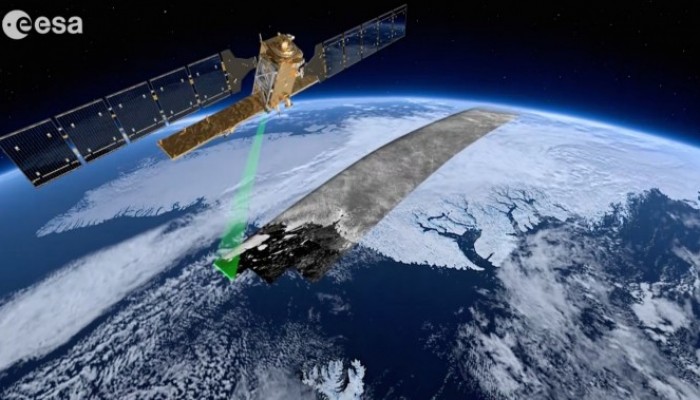
We truly live in an era where anything seems possible. However, the domain of space has long had the image of being out of reach for the average entrepreneur. Well, not anymore. That giant leap for mankind? It’s actually just one small step… OK, three steps. Here’s how your business can become a space business.
Step 1: A new realisation
Step 1 is a change of mind.
As a kid, you probably have gazed at the night sky. Wondering if you can take a trip to the moon one day. Counting stars, giving them names. You drew rockets or even built one with empty bottles. You were fantasising about floating in a space station feeling weightless, looking at our beautiful planet through a tiny window. Or you were peeking through a telescope searching for funny looking creatures in funny looking spaceships.
We’ve all been there.
Then adulthood kicked in. And with that came the realisation that chances of you getting into space aren’t that high. And let’s be honest: that’s quite a valid thought.
But what if I told you… that you can start dreaming again.
Space isn’t just about building rockets. Space isn’t just about exploring the universe. Space, today, is also about having impact on earth. You just have to realise that space is much more. Think about it.
Without even knowing, you might already have a space based business. Are you using satellite navigation? Ever used the words GPS (US) / Galileo (EU) in your meetings? Are you building upon satellite telecommunications? Are you mapping surfaces? Interpreting aerial imagery and/or data? Do you analyse the weather? Maybe you’re a geoscientist? Or an engineer? Are you researching the climate crisis?
You guessed it: it all has to do with space somehow. A lot of companies are so called space related businesses. And they don’t even realise it.
In this article we broke down just a few of the examples and opportunities.

Step 2: Do your research
If you clicked that last link and read that article, you know it’s now easier than ever to enter the world of space. And although the opportunities are there for the taking, and there is a lot of support and open information/data sets, that doesn’t mean you still have to do some crucial research yourself.
First, like almost every starting company, you need to validate your business. This means, in short, that you will check if there is demand for your service or product. To be more precise, there needs to be a problem big enough to which you are offering the solution to.
Second, find out if your business is technically feasible and financially viable. By which we mean: is today’s technology capable of getting you to market in a reasonable period of time? Because we’ve seen it: you can totally be too early with your idea.
And that’s where the money comes in. Let us explain. When you talk about rockets, you better bring a big bag of money and years of development time. When you’re building a space based business, you have the opportunity to enter the market faster. The longer the runway, the more money you are burning.

So if the technology can’t get you to market in – let’s say – 2 years, that’s (in most cases*) a bad business case. For the average entrepreneur or small/medium enterprise, working years on developing a product without any sales isn’t financially viable, and thus not technically feasible.**
*A Little Side Note: when you’re building a hardware company it of course takes longer than building a SaaS startup.
**A Little Side Note Episode II: that’s without external financing that is. But getting investors simply takes a lot of time. Valuable time you could spend on your business. Here’s a little startup secret: for first-time founders it’s important to try to grow without a financial injection (“bootstrapping'”. Because angel investors and venture capitalists want to put money in proven founders and/or traction first.
Still with us? Good.
The third thing to do research on: the space link.
So you figured out what makes you a space-based business. By now, you should be able to explain the basics of your space connection. But: you need to dig deeper. For instance, there is Earth observation and there is Earth observation.

Are you using active or passive remote sensing? Which resolution of satellite imagery are you going to use? Optical or radar imagery? What kind of data are you going to interpret and why? Apply it to which market? From which satellite are you getting data exactly?
In order to move forward, you need to know the specifics. Especially if you have never worked with space technologies before. Here’s the no-brainer: do your research before entering the market.
If one thing is certain by now, it’s that you can be called a space based business easily. But it still is a complex sector with lots of variables. The better you can explain your connection to space, the better the industry can help you when matters get really complex. Simply said: it speeds up your business building process.
Step 3: Apply for the Ignition Programme
Ah, there it is, the promotion. It’s a useful one though.
The Ignition Programme by SBIC Noordwijk helps entrepreneurs tweak their space based business. Specifically we are all about step 2: helping you with discovering the space link, finding out if your solution can be built in the first place and if it makes sense financially.
In just 5 days (spread over 5 weeks), you will gain valuable insights in the technical feasibility and financial viability of your business. With dedicated coaches, matched to your business or technology.
Now, who doesn’t want that?
Then, if you’re interested, you can even join the business incubation programme from the European Space Agency, ESA BIC. Approximately half of companies use the Ignition Programme as a stepping stone to become a startup with the “ESA seal of approval.”
So if you want to work with space technology, and think your idea can become a space based business: Apply now!
Applications are now open: don’t miss out!


